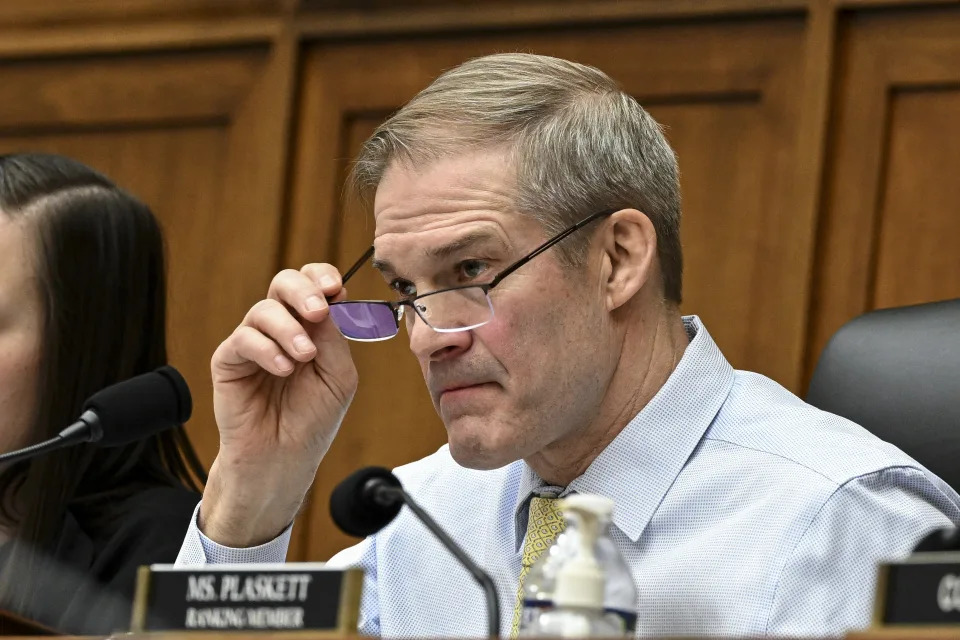The New York Times
The MAGA-fication of North Idaho College
Charles Homans – March 6, 2023

COEUR D’ALENE, Idaho — The February meeting of the North Idaho College board of trustees was, by recent standards, civilized.
There were no shoving matches or speeches from far-right podcasters. Nobody pulled the fire alarm. The parade of community members who, under the wary eye of campus security officers, took turns at the microphone mostly kept their voices below shouting volume, until an hour or so before midnight, when a woman cried “Shame on you!” and stormed out of the room.
Mostly, people seemed stunned that it had actually come to this.
For most of the past two years, the college’s governing board has been a volatile experiment in turning grievances into governance. Trustees backed by the county Republican Party hold a majority on the board. They have denounced liberal “indoctrination” by the college faculty and vowed to bring the school administration’s “deep state” to heel and “Make NIC Great Again.”
The injection of such sweeping political aims into the routine administration of a community college of 4,600 students, one better known locally for its technical training programs than the politics of its faculty, has devolved into a full-blown crisis. The school has faced lawsuits from two of the five presidents it has had since the start of the previous school year. A district court judge ordered one of those presidents reinstated Friday in a ruling that castigated the trustees for “steering NIC toward an iceberg.” The college has lost professors and staff and had its debt downgraded by Moody’s, which cited the school’s “significant governance and management dysfunction.”
The troubles culminated last month in a letter from the regional higher education commission, which warned that the 90-year-old college could be stripped of its accreditation if changes were not made in a matter of weeks — an effective threat of closure and a potential catastrophe for Coeur d’Alene, a town of 56,000 in the Idaho Panhandle. The college is the sixth-largest employer in Kootenai County and a source of skilled labor for much of the local economy.
“As a businessperson here, it’s heartbreaking to me to be standing on the brink of the loss of this institution,” said Eve Knudtsen, owner of a Chevrolet dealership in the neighboring town of Post Falls. Knudtsen, a Republican, attended NIC, as have both of her daughters, and she said one-third of the technicians hired by her dealership came out of the school.
“It’s pretty much a dystopian farce,” said Kathleen Miller Green, an assistant professor of child development who attended the nearly six-hour, capacity-crowd meeting at the school’s student union building Feb. 22. “It’s laughable if you don’t have to live it.”
Rick MacLennan, a former president of the college who was ousted by the trustees in 2021, describes the school as “a canary in the coal mine” — a warning of what awaits local institutions across the country as fiercely partisan and disruptive cultural battles spread into new corners of public life. He and other critics of the trustees see parallels with Gov. Ron DeSantis’ efforts to remake New College, a state-run liberal arts school in Sarasota, Florida, as a conservative bastion.
What’s different about North Idaho College, however, is that local voters have more directly driven the change — and the results have been less ideological overhaul than organizational chaos.
In Kootenai County, a magnet for conservative retirees from other states where Donald Trump won 70% of the vote in 2020, most public institutions and services are overseen by directly elected trustees. That means that Republican activists and voters, who increasingly see even once-benign institutional authorities as a threat to their values, are in a position to do something about it.
The clash over the college began in 2020 when, after the killing of George Floyd by police in Minneapolis, the school’s diversity council issued a statement expressing support for social justice demonstrations, including Black Lives Matter protests. The statement caught the attention of the Kootenai County Republican Central Committee.
That year, the committee began vetting and endorsing candidates for county board positions in what are technically nonpartisan elections. In the Coeur d’Alene Press, a committee precinct-person accused the school of supporting a “radical, racist and Marxist organization” and “guilting white male students,” and urged county residents to vote for two candidates endorsed by the committee “to balance the NIC Board” in the November election.
Brent Regan, the committee’s chair, argues the endorsements are no different from those of the local Rotary Club or newspaper.
“The mission of the Republican Party in Kootenai County is to try to find people who will run for office — any office, from sewer districts to school boards to trustee boards — who embrace the policies of the Republican Party as outlined in our platform,” Regan said.
In the matter of the college’s imperiled accreditation, he said, “We’re a convenient scapegoat.”
The committee’s college trustee candidates both won. They formed an informal majority on the five-member board with a like-minded incumbent trustee, Todd Banducci, who had clashed on occasion with other trustees and the school’s administrators and staff.
In an email to a conservative student, Banducci wrote that he was “battling the NIC ‘deep state’ on an almost daily basis,” and complained that “the liberal progressives are quite deeply entrenched.”
In a conversation after the election, Banducci chided MacLennan, then the college president, for his wife’s support for Hillary Rodham Clinton and told him that he would give him “marching orders,” according to MacLennan.
“My perspective was, you can’t do that,” MacLennan recalled. “It’s not going to work like that.”
In January, he wrote a letter to the trustees expressing his concern over what he described as a pattern of behavior by Banducci, who had been privately censured by the board the year before following a report that a college staff member had felt “threatened and intimidated” by him. (Banducci did not respond to a request for comment regarding the incident.) In March, local human rights organizations filed a complaint with the Northwest Commission on Colleges and Universities, the accreditation body, arguing that Banducci’s conduct had “severely violated” several criteria for accreditation.
“They were in the process of dismantling the institution,” said Tony Stewart, secretary of the Kootenai County Task Force on Human Relations, which drafted the complaint.
Regan argued that Stewart’s organization, which formed in the 1980s to combat white supremacists who were active in Kootenai County, had strayed far from its mission.
“Were there human rights violations going on?” he said. “No.” He called the accreditation review a “political” process, “started by people who didn’t like the results of the election.”
Banducci’s bloc of trustees eventually fired MacLennan without cause, installing the school’s wrestling coach as interim president. A power struggle ensued, with the state education board at one point appointing several interim trustees who hired a new president. In the November 2022 election, candidates backed by the GOP committee once again claimed a majority and replaced him, too.
The turnover has been cited by the accreditation body, along with several votes of no confidence in the trustees from the college faculty and student government, as a source of its concern. Sonny Ramaswamy, the commission president, declined to discuss the accreditation review, citing discussions with the school.
In November, Greg McKenzie, the current board chair, dismissed the prospect of losing accreditation as “Fake News” in a letter to constituents.
But at the February meeting, as that loss suddenly seemed like a very real possibility, the trustees appeared somewhat chastened. McKenzie reminded the crowd that members of the accrediting commission were watching via livestream and asked attendees to help avoid the circuslike atmosphere of recent meetings.
In December, Vincent James Foxx, a far-right antisemitic podcaster who lives in Kootenai County, took the microphone to offer the bloc of trustees his “100% support.” That meeting was interrupted twice by fire alarms.
The threat of losing accreditation — which would leave the school ineligible for federal financial aid and students’ credits worthless if they transfer — has drawn local business leaders off the sidelines.
At the meeting, Greg Green, a telecom entrepreneur and philanthropist, vowed to fund challenges to the committee-backed bloc of trustees in the next election, in particular Banducci. “I had no clue how bad things were,” said Green, a Republican.
But the bloc has withstood one such challenge already. In November, the local chamber of commerce and a new political action committee called Friends of NIC endorsed a slate of rival candidates for three open trustee seats. But a Republican committee-backed candidate won one of the three races, enough to recapture a majority.
In interviews, students said the imminent threat of losing accreditation had caught the attention of a student body that had mostly tuned out the years of confusing power struggles.
“It’s really sad,” said Madeleine Morgan, a second-year English and chemistry double major from California. Morgan said she had come to Idaho from California hoping for more political diversity. “It’s not like I really disagreed with the ideas down there,” she said. “It’s just that I wanted a place where, conservative or liberal, you could speak your mind.”
Still, she found herself siding with the faculty. “They have families to feed and bills to pay,” she said. “They’re not the problem here. The trustees are.”




























